
 Flash News
Flash News
Megaoperation/ Group based in Durres, names of Albanian traffickers revealed
Why was the operation carried out after the elections? The question that embarrassed Altin Dumani
A 24-year-old man was found dead in Lake Farka.
Money, businesses, television/ What was seized during the mega-operation? Two officers involved in the criminal scheme
Operation "Bridge", Bari Chief Prosecutor: Albanian Mafia is a very large international force
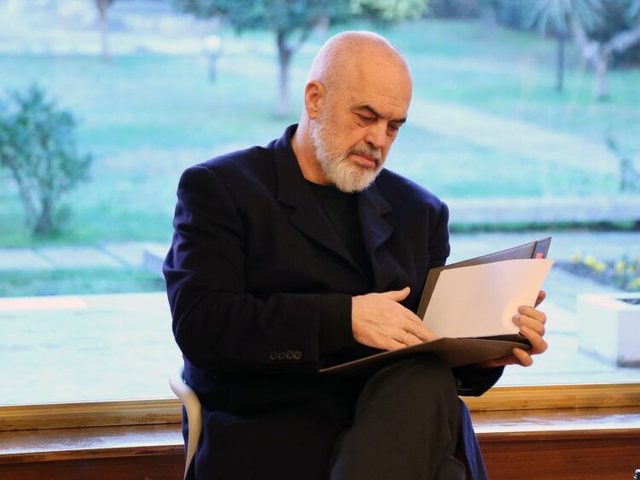
In the parliamentary elections of May 11, the ruling Socialist Party won a fourth term at the head of the country, while the number of its deputies rose to 83, securing the largest majority since 1997.
The Alliance for a Greater Albania, a coalition of opposition parties led by the Democratic Party, came in second, electing 50 deputies. The Social Democratic Party received 3 deputies, and three new parties won a total of 4 representatives.
The Democratic Party has not accepted the result, while its leader, Sali Berisha, declared that the vote was manipulated and that dozens of candidates were elected with the influence of organized crime.
Meanwhile, the new opposition parties complained that the greatest manipulation came from the electoral system itself, which has distributed fewer seats in the Assembly compared to the percentage of votes received.
According to international observers from the OSCE/ODIHR, the elections fell short of international standards, as they were conducted on an uneven playing field, as a result of massive misuse of state resources, voter intimidation, and control of media freedom.
Local scholars and analysts are also concerned, as they weigh the impact that the Socialists' victory will have on Albanian democracy and its institutions.
"Practically, the Socialists, and more precisely Edi Rama, have everything in their hands," said Ermal Hasimja, adding that such a large parliamentary majority would pose a challenge for any country.
The May 11 elections are the tenth time that Albanians have elected their representatives to the Assembly since the fall of the communist regime in 1991. In the last three decades, the country has been involved in a difficult and often tumultuous transition towards a democratic state.
According to writer and former political prisoner Fatos Lubonja, regimes can secure an increase in votes in a fourth term, even after a government filled with corruption scandals and links to organized crime.
“There is a regime in Albania, there is no democracy,” he said. “This (result) means more control of the media, of the judiciary, of the institutions that should control the rule of law, and the ever-increasing use of repressive bodies like the police or economic pressure,” Lubonja added.
Hasimja states that the first target of the new socialist majority could be the new justice system and in particular the Special Anti-Corruption Structure, SPAK, which - depending on who you ask, has shown signs of independence from politics and a willingness to crack down on illegality at high levels.
“Tek e vetmja pikë ku mund të mobilizohej opinioni publik më lehtësisht, në mbrojtje të SPAK-ut dhe drejtësisë, fatkeqësisht Rama ka dakordësinë e Berishës, dhe rrjedhimisht edhe aty e ka derën e hapur për ta hequr qafe ose kontrolluar,” tha ai.
Sali Berisha është marrë i pandehur nga SPAK për korrupsion si pjesë e një afere për zhvillimin e një kompleksi pallatesh në ish-qendrën sportive të klubit ‘Partizani’ në Tiranë. I akuzuar në krah të tij është edhe dhëndri, Jamarbër Malltezi. Të dy i mohojnë me forcë akuzat dhe i kanë cilësuar ato si të nxitura politikisht nga Edi Rama.
Edhe ekspertja e komunikimit, Edlira Gjoni, është e shqetësuar për qasjen që mazhoranca do të mbajë ndaj pushtetit gjyqësor. Ajo i tha BIRN se pushteti i madh rrezikon ta kthejë drejtësinë në një mjet të tijin.
“Kur kontrolli mbi legjislacionin, drejtësinë dhe burimet publike përqendrohet në një dorë, nuk jemi më në një rend demokratik funksional, por në një terren ku institucioneve u kërkohet ligjërisht bindje, jo balancim,” tha ajo.
Masiviteti i shumicës, që i mundëson socialistëve të ndërmarrin të vetëm ndryshime ligjore që kërkojnë kompromis, është sipas saj “një shkelje syri e rrezikshme me idenë se pushteti është mirë të përforcohet, e jo të kufizohet”.
Analistët i druhen faktit se kjo fuqi, e prodhuar nga një proces zgjedhor me probleme, mund ta shtyjë vendin – që deri tani vlerësohet si një demokraci me probleme, edhe më tej në autoritarizëm, pasi opozita, edhe më herët e dobët, del nga këto zgjedhje e shkatërruar.
“Pakësimi i opozitës është edhe më i madh dhe një pjesë e mirë (e votuesve) kanë ikur apo s’kanë votuar,” tha Lubonja.
Edhe Gjoni ngre shqetësimin se dobësimi i mëtejshëm i opozitës është një rrezik i madh për vendin.
“Shqetësuese nuk është vetëm fitorja, por më shumë humbja e një busulle për ç’është e mirë e ç’është e rrezikshme në politikë,” tha ajo, ndërsa shtoi se “tani kemi një Shqipëri që po mësohet të jetojë pa opozitë reale, pa debat, pa balancë”.
Gjoni thotë se qytetarët kanë filluar të heshtin si instinkt vetëmbrojtjeje dhe se kjo sjellje dëshmon që nuk jemi në një demokraci funksionale.
“Është një iluzion i saj, i zbukuruar me fletëvotimi,” tha ajo.
Sipas Hasimes, numrat e mazhorancës së re e bëjnë rezistencën ndaj pushtetit të saj një sfidë për forcat demokratike.
“Mekanizmat më të besueshëm të kundërvënies në këto kushte janë eventualisht partitë e reja, nëse ia dalin të fuqizohen, dhe shoqëria civile, nëse ia del të ngrihet nga gjumi,” tha ai.
Gjoni mendon se kontrolli mbi shumicën mund të vijë vetëm nga jashtë sistemit dhe nga një aktivizëm më i madh i shoqërisë civile.
“Ai (sistemi) është kalbur i gjithë,” thotë Gjoni. “Ndaj edhe segmentet e ndryshme të biznesit, intelektit, mjekësisë, parisë, duhet të refuzojnë të nënshtrohen,” shtoi ajo.
Lubonja, nga ana tjetër, është edhe më pesimist mbi pasojat e këtij rezultati dhe pushtetin që ai i jep Ramës. Shkrimtari thotë se mbështetja që sistemi merr nga jashtë e bën atë të pakontrollueshëm.
"For me, it has become even more uncontrollable because of the support given to it by Europe, or EU politicians, who have proven to be failures in their own country," Lubonja said, adding that "authoritarian leaders are growing everywhere here and we are cooperating with them."
According to the writer, who spent part of his life as a political prisoner in the dictatorship's prisons, the only remaining hope is for the regime, as he calls it, to collapse from its own sins, but this, according to him, will come with serious consequences for the country.
“This regime will fall from its own failure, and this will be bad for Albania, because it will bring a catastrophe,” he warned./ BIRN
Latest news




"Grandma", "beast", the nicknames used by Albanian and Italian traffickers
2025-05-21 14:26:47
Pope Leo asks Israel to allow humanitarian aid into Gaza
2025-05-21 14:18:42

Document/ How did Nuredin Dumani hit Xhevdet Troplini's group of traffickers?
2025-05-21 14:05:45

Megaoperation/ Group based in Durres, names of Albanian traffickers revealed
2025-05-21 13:42:44
Former politician shot dead outside his children's school
2025-05-21 13:39:27
A ka BE-ja ende mjete efektive për t'i shkaktuar dhimbje Rusisë?
2025-05-21 13:26:33
Berisha: We will never accept such choices, no one can force us to accept them
2025-05-21 13:25:29




A 24-year-old man was found dead in Lake Farka.
2025-05-21 12:37:34

The abolition of the vote as a triumph of banality
2025-05-21 12:18:53

The only name for May 11th is: Electoral Terrorism
2025-05-21 12:06:25

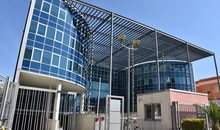
Letter-order from Belgium, SPAK checks 4 premises, 33-year-old arrested in Berat
2025-05-21 11:37:31
Hajj 2025/ Everything you need to know about the annual pilgrimage to Mecca
2025-05-21 11:28:43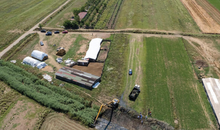
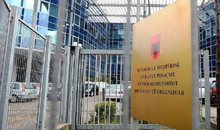
The appeal of the GJKKO leaves the head of the Road, Roven Zeka, in prison
2025-05-21 11:02:16

Kuçova! 66-year-old man sexually harasses 17-year-old girl
2025-05-21 10:41:40

Mental disorders and obesity threaten adolescents
2025-05-21 10:22:04

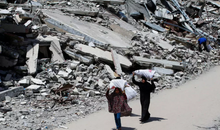
19 killed in Gaza by Israeli attacks, most of them children
2025-05-21 09:50:03
Tabaku: SP seeks to usurp independent institutions
2025-05-21 09:40:19



Is the Socialist Party's supermajority a danger to democracy?
2025-05-21 09:01:54


Video/ Explosives found at Veliera in Durrës, near Vangjush Dako's apartment
2025-05-21 08:32:15
The lack of flights at Vlora airport jeopardizes tourism guarantee contracts
2025-05-21 08:22:54
Horoscope, what do the stars have in store for you today?
2025-05-21 08:09:02

Morning Post/ In 2 lines: What mattered yesterday in Albania
2025-05-21 07:47:36







38 people arrested for conspiracy in Venezuela, among them an Albanian
2025-05-20 21:18:15
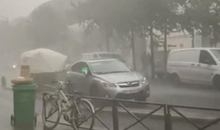
Torrential rainfall hits southeastern France, 3 confirmed victims
2025-05-20 20:49:14

Shehaj: Our votes will never unite with Edi Rama
2025-05-20 20:24:31
The ship "Butrinti" rescues 13 migrants in the Aegean Sea, including 2 children
2025-05-20 20:01:12
Video/ Revolt in Corfu prison, Albanians and Georgians set fire to cells
2025-05-20 19:51:04
Biden diagnosed with cancer, questions about his health in the White House
2025-05-20 19:37:01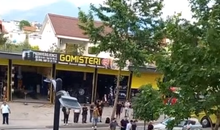



How SP candidates withdrew from vote complaints after Rama's message
2025-05-20 18:34:12
Trump-Putin conversation/ Analysis: Who won in the two-hour call?
2025-05-20 18:15:00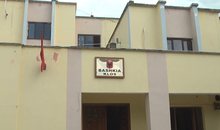
Suspicions of electoral crimes, SPAK checks the municipality of Klos
2025-05-20 18:02:48
Vucic message to the Serbian coach: Go to Tirana and win against Albania
2025-05-20 17:50:48
Këlliçi: The diaspora vote is a massacre, the violations are flagrant
2025-05-20 17:39:37
Accused of drug trafficking in Italy, the Supreme Court acquits Kreshnik Farruku
2025-05-20 17:20:53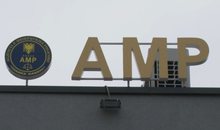

Venezuelan President: Ecuador's Albanian Mafia seeks to sabotage our elections
2025-05-20 17:01:14
Accident at "Shkalla e Tujanit" in Tirana, a car overturns after the collision
2025-05-20 16:51:18
Diaspora vote, Source: Process more symbolic than with real impact
2025-05-20 16:41:12
Why Careful Reporting on Tragic Cases Is Important
2025-05-20 16:17:12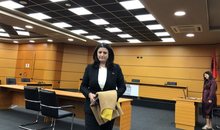
KPA dismisses Tirana judge Ardiana Bera from office
2025-05-20 16:13:30
Even young people with hypertension, 35% of 18-year-olds with blood pressure
2025-05-20 16:01:07


Enigma/ How did the SP grow more than in the previous elections this year?
2025-05-20 15:12:50
Threat against President Osmani, KMDLNJ: Risk to security and democracy
2025-05-20 15:01:56

Hungary's parliament approves withdrawal from the International Criminal Court
2025-05-20 14:50:00
Defamation lawsuit against Albana Vokshi, hearing postponed at the GJKKO
2025-05-20 14:36:20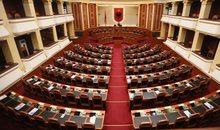
Names/Who are the 140 MPs who will sit in the Assembly?
2025-05-20 14:21:57
Why don't young people want to get married anymore?
2025-05-20 14:15:27
EU approves new sanctions against Russia
2025-05-20 13:49:54
Flax seeds, positive and negative effects of their consumption
2025-05-20 13:45:54

Pope Leo XIV's house goes up for auction for $250,000
2025-05-20 13:23:49

Don't lose face/ After Rama's 'threat', SP candidates withdraw request from CEC
2025-05-20 13:02:09
Berisha warns Rama: You will not stay in power with this farce
2025-05-20 12:55:00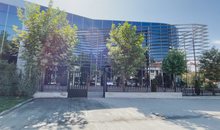



RTSH's official website hacked, fake news about Kosovo appears
2025-05-20 12:10:17

Accident in Korça, motorcycle collides with car, 45-year-old injured
2025-05-20 11:44:48
